After getting in more plays of my top game from last year, Tiletum, I wanted to revisit some of the other games I own from designer Simone Luciani. After doing a quick browse of the shelf, I pulled out a game that I always enjoy playing that I was pretty sure to be a Luciani design.
It turns out that Coimbra (2018, eggertspiele) is not actually a Luciani design. But it is from “The Italians”, which is my catch-all name for the design collective of Luciani and a few other Italian tabletop luminaries, including Flaminia Brasini and Virginio Gigli. Brasini and Gigli are the actual designers of Coimbra, and these two also had their hands all over Golem, Lorenzo il Magnifico, Alma Mater, and/or Grand Austria Hotel and the Let’s Waltz! expansion. (The artwork of Chris Quilliams from Coimbra and Alma Mater is essentially the same, adding to the confusion.)
This means I had no choice but to love Coimbra. I’ve played Coimbra a few times but the plays have been spread out over many years. After getting this back to the table in recent weeks, it’s been fun to remember why I enjoy the game so much, and why the game needs a boost in one key area.
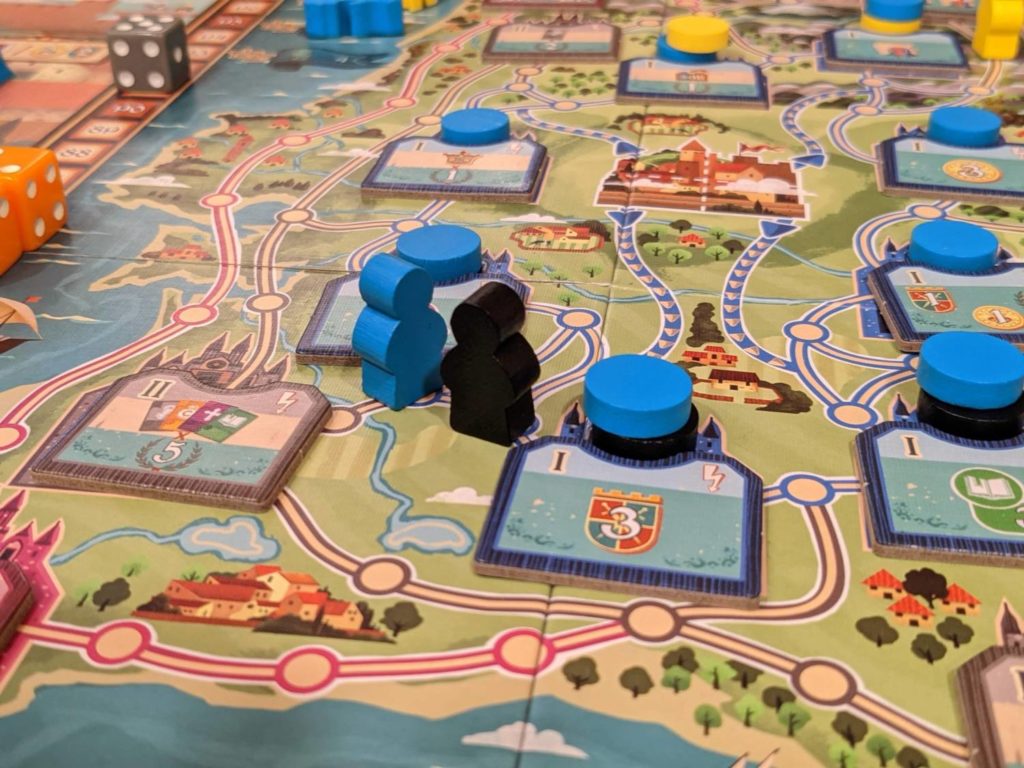
This, Then This, Then a Little Bit of This
Coimbra is a dice drafting game. Over the course of four rounds, 2-4 players will advance up some tracks, move a pilgrim pawn around a board to score in-game and end-game bonuses, and pay for end-game points on milestone voyage cards throughout play. You’ve got player boards to track spendable resources, a big scoring track, and ongoing bonuses to go along with a set collection element for scoring, too.
It’s a Eurogaming potpourri of comfy sweaters—everything you’re used to seeing, nothing original, but all of it fits well. What sets Coimbra apart is the dice drafting mechanic, and that’s what helps the game retain its charm five years after its release.
The first two portions of each round are where the magic behind Coimbra resides. Somebody rolls the dice, then the first player chooses a die.
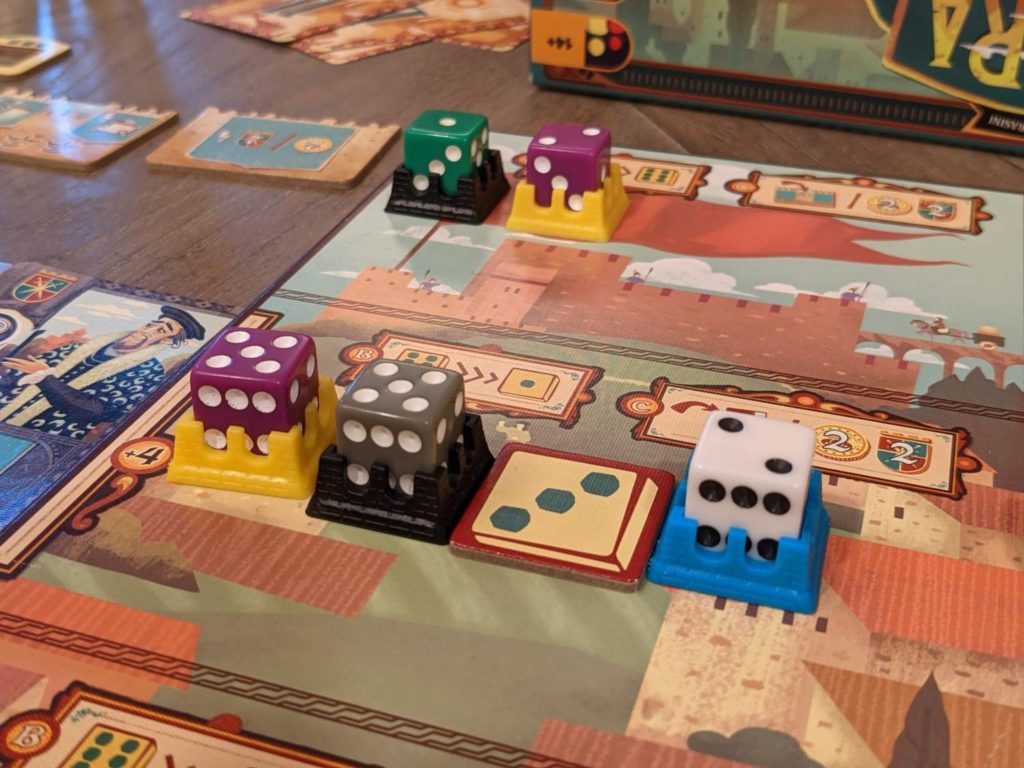
The dice come in five colors: white (wild), green (income), orange (coins), gray (shields), and purple (pilgrim track). These D6s determine the strength of each die, so more pips means that the die can be used earlier in turn order when actions are taken. But that comes at a cost—the number of pips equals the number of either coins or shields that must be spent to acquire a card from one of the three city locations on the board.
Another thing to consider: the color of the die chosen will then trigger income based on the different tracks. Draft an orange die, and you’ll earn coins based on your current track position. Draft the wild die, and you can take resources from any of the four tracks.
After drafting each die, players decide where it goes. Of the four choices, three of these are city locations (upper, middle, and lower), which are simply four-card markets where the player with the highest-value die gets to pick a card first. The fourth gives players access to favor tiles with various powers, like placing a marker on one of the game’s six end-game scoring cards, or taking coins or shields if they are low on resources. These tiles also have crowns that can help flip turn order in successive rounds.
Making all of this more tense: sending a die to one of these locations could mean being squeezed out of taking a card or a favor tile altogether. If there are more than four dice in a location, the owner(s) of the remaining dice get a consolation prize of two coins and two shields. In this way, as much as going first is a benefit, going last is pretty useful as well. Usually, players will not place a die where they cannot get something useful.
Players then draft tiles or cards, and in the case of cards, they advance up tracks 1-4 spaces based on the color and value of the card. All tracks grant players points based on their final position. Between tracks, voyage scoring, a small amount of in-game scoring, pilgrim scoring, and cards that grant end-game scoring, Coimbra turns into a bit of a salad because everything is worth something by the end of play.
But play it, you should.
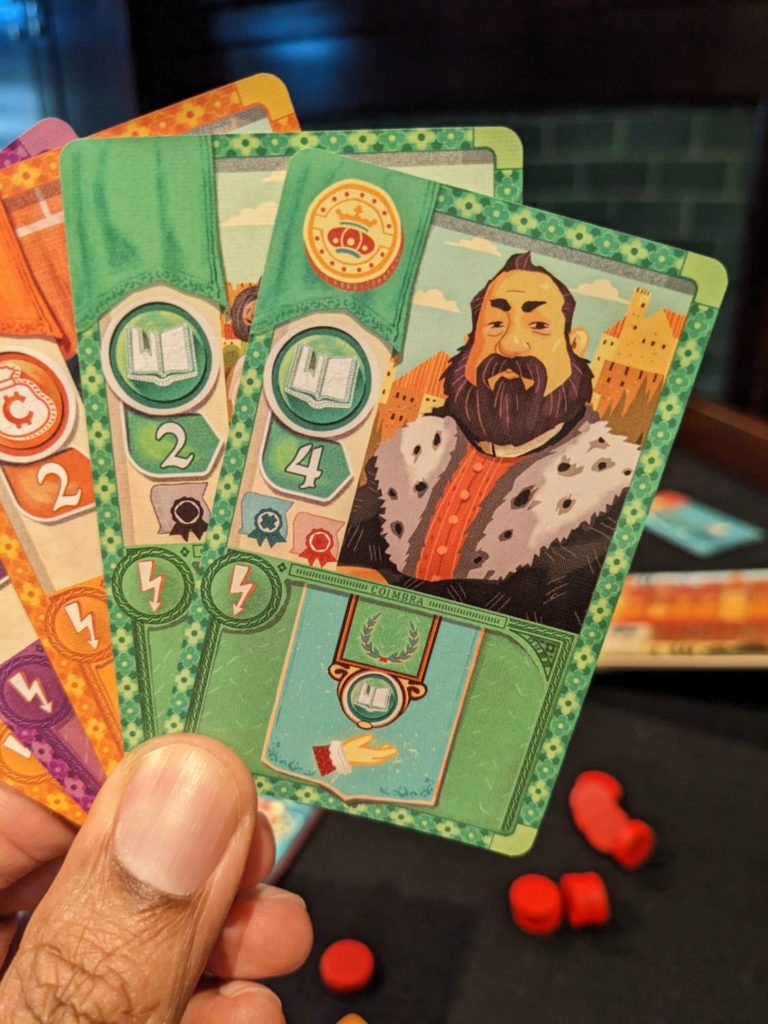
It Still Makes Me All Tingly!!
Full disclosure: I love drafting dice. Tiletum was the best game I played in 2022, and that’s in no small part because of the dice drafting.
In Coimbra, the dice drafting decisions are juicy, and the push-pull here hasn’t lost its luster. I recently entered a two-player duel with a friend and both of us just lathered ourselves in happiness as we debated which die to take on a turn. Lining these decisions up with cards that triggered more powers made it that much sweeter. Boxing out an opponent for the best card in each market is also a blast—”hate drafting” is real—and I was surprised by how quickly everything about the game’s strengths came back to me.
The game is a beautiful series of components: the cards, the colorful dice, the player boards, the insert, the cool-looking player order tokens. It’s just a pleasant thing to put on your gaming table. Playtime is fast, too—my two-player game took less than an hour. Even at four players, you’re looking at a 90-minute experience.
The major downside with Coimbra is the deck of character cards. Let’s just call a spade a spade: there are not enough character cards to choose from. The game comes with 56 of these cards, eight of which are set-up cards given out in pairs to each player. All of the other 48 cards are used in every single game (each city section’s cards are either drafted or discarded in each round).
There is an expansion to Coimbra, but it doesn’t add any cards. (It does add…a felt-lined dice box???) This is a fail, and I don’t get the sense that additional expansions are coming any time soon. That’s a shame, because as fun as Coimbra can be, the replayability feels limited here.
But for a game that has seen my table four times? Coimbra is fantastic, and it’s staying in the collection for now.


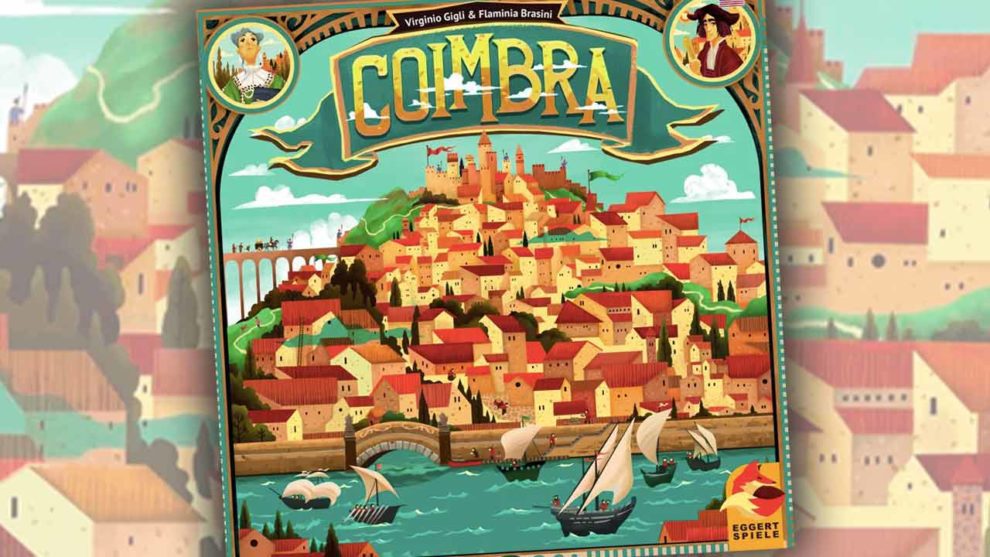




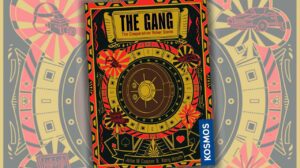




Add Comment